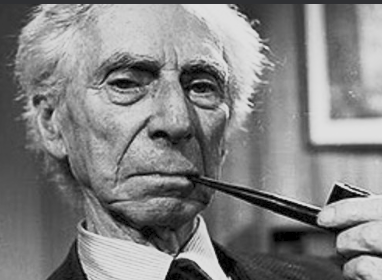Bertrand Russell (1872–1970) was one of those rare thinkers who refused to stay in his lane. Philosopher, logician, mathematician, essayist, activist—he ricocheted across disciplines like a pinball, and somehow managed to leave deep dents in every one.
Born into British aristocracy, Russell could’ve just lived the comfy life of a lord with leisure. Instead, he picked a fight with the foundations of mathematics. His Principia Mathematica, co-authored with Alfred North Whitehead, tried to prove all of math could be built from pure logic—three thick volumes to establish, among other things, that 1 + 1 = 2. (They actually didn’t get to that proof until hundreds of pages in. That’s commitment.)
But Russell wasn’t just a dry logician. He was also a fierce public voice. During World War I, he opposed conscription and went to prison for it. Later, he became one of the loudest critics of nuclear weapons, co-authoring the Russell-Einstein Manifesto, which helped spark the Pugwash Conferences on Science and World Affairs. His Nobel Prize in Literature in 1950? Not for math, but for his sharp, clear essays on freedom of thought and humanitarian ideals.
So, who the hell was Bertrand Russell? He was a man who tried to build an airtight house of logic, then stood on the roof shouting warnings about human folly. He believed in reason but never forgot the chaos of politics, war, and desire. A philosopher in the streets, a logician in the sheets, and a humanist to the end.

